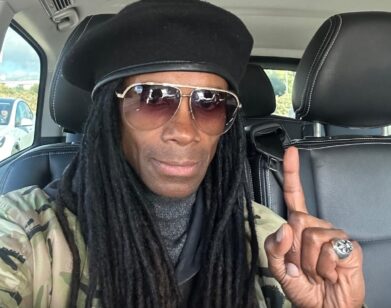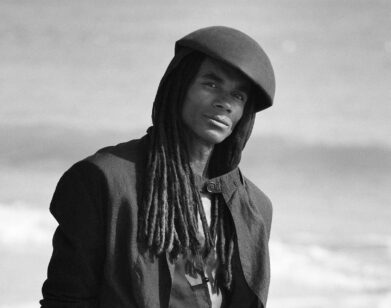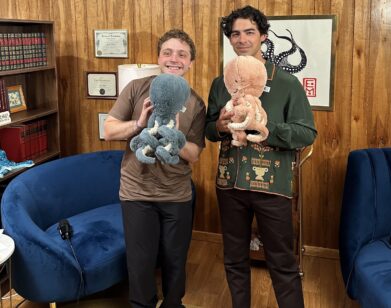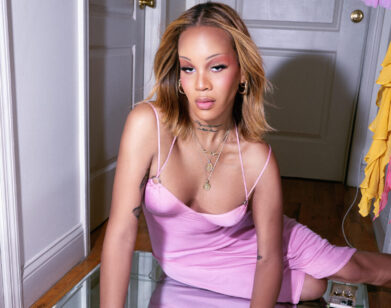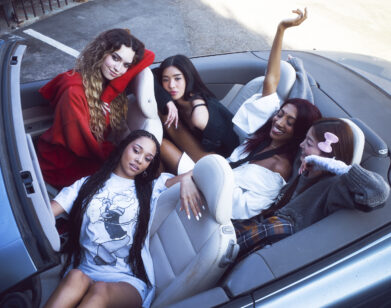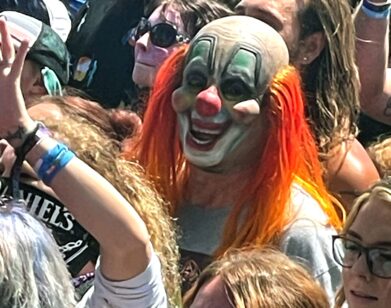Matisyahu Holds His Tongue
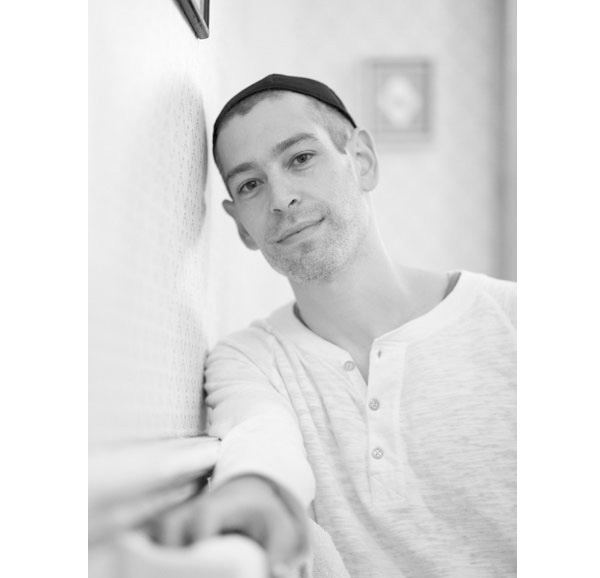
ABOVE: MATISYAHU.
Matisyahu has been on a journey of change as of late. He shocked fans by shaving off his trademark facial hair and posting photos to Twitter—a bigger deal for him than it would be for most people. For Matisyahu, born as Matthew Paul Miller, his beard has been a representation of his religious beliefs (as a Hasidic Jew) and as his defining feature as a pop-reggae artist. Matisyahu has definitely been marching to the beat of his own drummer, and he is still on his religious journey; it’s just changing and evolving even more now than it has been for the past 10 years. Last month, Matisyahu released his Miracle (Remixes) EP, which features five alternate versions of “Miracle.” He will be playing his “Festival of Light” shows in his hometown of New York throughout New York City and Brooklyn from the beginning of Hanukkah until December 22.
We were able to speak with Matisyahu during his time on vocal rest about thinking before he speaks, doing his own thing, and—yes—shaving.
ILANA KAPLAN: You’ve been on vocal rest; what’s your recovery process been like?
MATISYAHU: Vocal rest is awesome. It is like any kind of fast. Firstly, it is a purification of speech. It made me realize how not careful I am with the things I say. It also makes you find new ways of communication and new methods to connect with people. For example, we had some guests over on Shabbos, and I couldn’t speak, so I served the food to everyone. I felt much more useful and giving than had I been contributing to conversation. I’ll call my wife, and she’ll tell me all about what’s happening in her life. If she says something I don’t like, rather than respond, I have to think about it and respond after the thought. Not just gut reactions. The first Shabbos I wasn’t speaking, I went to shul and in part of the rabbi’s sermon, he spoke about the idea in Torah, which says, “Who is wise? Him who guards his tongue and doesn’t speak unnecessarily.”
KAPLAN: How did you begin performing? What was the progression like? Was this ultimately what you thought you’d end up doing?
MATISYAHU: I started at home as a kid putting on shows and lip-syncing Michael Jackson for the grown-ups. Then, in musicals and plays in school. At 17, I was performing in coffee shops and in parking lots at Phish shows. At 18, I had a band that played local shows in the Northwest. Before I was 14, I wanted to be a singer, an actor, or a hockey player. By 15, I knew I was going to be a singer.
KAPLAN: Are there going to be surprises in store for the Festival of Light shows during Hanukkah in New York this year?
MATISYAHU: If I told you, it wouldn’t be a surprise, now would it?
KAPLAN: That’s a true story. What’s been most inspiring for you as a musician?
MATISYAHU: As a musician, music has been most inspiring—the music I listen to, the musicians I play with and the producers I work with.
KAPLAN: I know it’s hard since you have so much music out there, but what’s been the most meaningful song that you’ve written, and why?
MATISYAHU: I can’t choose one. That would be like choosing one child over another. First borns are always special. So that would be “Close My Eyes.” That was the first song I recorded. The second was “King Without A Crown” and the third was “Kodesh/Got No Water.” Those were all very special to me, because I recorded them in a small home studio in Philly while I was in yeshiva. I would leave New York early Friday morning and be back by Shabbos. I had very little outlet then for creative expression and was losing myself or trying to lose myself. I remember standing on the train platform coming back to the yeshiva and listening in my headphones and the flood of emotions hitting me at a time when I was emotionally dead. I knew this was my destiny; that I had something important to share with people and that it would resonate. At that time, the songs were just for me. When I was sad in Brooklyn, I would sneak up to the roof and listen (to music). Music has always been such an amazing tool for me to access self and emotion. Today, different songs and lyrics resonate at different times. For example, last night at my show singing the words, “Open the gates of righteousness, I’ll be coming home,” was really connecting. The other morning after I shaved my beard, I had no intention of telling my fans. I was just gonna show up at a show, which I’m glad didn’t happen, because people would have flipped. I went to bed, woke up, went to shul to pray at sunrise and came back. I was reading Twitter and someone had quoted my lyric from “Thunder”: “At the break of day, I look for you at sunrise, when the tide comes in, I’ll lose my disguise.” That gave me courage, and I went and took a picture and tweeted with that quote.
KAPLAN: People like to put performers into genres: you often fall in between reggae, rap, and jam band. How do you define yourself?
MATISYAHU: I don’t define myself. It’s stupid.
KAPLAN: In your opinion, why is religion such an integral part of your life and of your music?
MATISYAHU: I’m not sure.
KAPLAN: The re-release of the Miracles EP has brand-new remixes. Can you tell me about how that got put into action?
MATISYAHU: Well, I am making music with many different people in many different styles. Thought it would be cool to put a few of them on one CD of one song.
KAPLAN: As it’s almost 2012, what musical plans do you have in store?
MATISYAHU: A new record. Maybe two new records, lots of touring and lots of collaborations with different musicians.
KAPLAN: It’s been awhile since your first album came out, how do you feel you’ve grown as an artist since the beginning of your musical career?
MATISYAHU: Does it matter how I feel I’ve grown? If I’ve grown, it will be represented in the art. There’s no need to explain it.
MATISYAHU IS PERFORMING HIS FESTIVAL OF LIGHT SHOWS IN NYC TONIGHT THROUGH DECEMBER 22. FOR MORE ON THE ARTIST, VISIT HIS WEBSITE.

